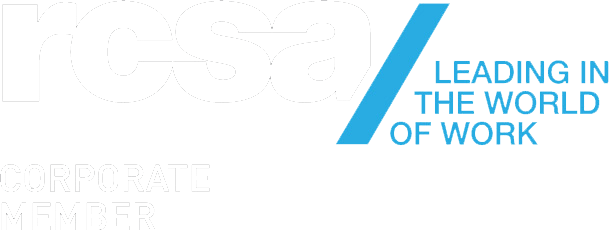Top 10 tips to get the most out of your interviews.
Video interviews have been thrust into the forefront of recruitment processes over the past few years thanks to the COVID-19 pandemic and are undoubtedly likely to play a part still in the interview process moving forward. However, good old-fashioned face to face in person interviews still carry enormous weight for both parties to get a feel for each other and make an informed decision.
Face-to-face interviews can be tough and are an absolutely critical part of any interview process. Get it wrong and it can be a very costly exercise. Get it right, however, and it can be a terrific experience for both Hiring Manager and the candidate. Remember that the best experience a candidate can have with you during an interview process can go a long way in securing top talent, especially in this competitive market. Whilst sometimes it can be quicker and seemingly easier to jump online these days, inviting a candidate to come to meet you on-site is key. They need to see the working environment in the flesh as this forms an overall opinion on if they can see themselves working at your company.
We've put together our top 10 tips for getting the most out of interviews.
1. Be ready!
To avoid any chance of a candidate having a negative interaction with your organisation, make sure your role is approved and good to go before you commence the interview process. It is also important to know your company processes to minimise any possible risks that may hold things up. Long drawn out processes that include background checks or testing without clear communication can be detrimental.
2. Be clear on what you are looking for
'Fail to prepare and you'll prepare to fail' as the saying goes and it works both ways for interviews. Not only should the interviewee be thoroughly prepared but the interviewer must be as well. First, you need to be clear on what your needs are, what skills you are looking to hire, and what culture traits you are looking to bring into the organisation.
You may already be very clear on what you are looking for, but a good way of identifying what you need could be taking a quick inventory of what skills, experience and strengths you have in your existing team. Systematically you can then assess what is working well, and what you would like to add. In a talent short market, it's not always wise to have a rigid list of demands for your next hire. Keeping open-minded in your hiring is going to open the pool a little wider. It's not about settling for second best at all, it's simply about knowing what are your nice to haves v your must haves.
3. First impressions matter
The first tip is to be on time, don't keep your candidate waiting! If you are running behind schedule - ensure this delay is communicated. Upon greeting your candidate, know that they are assessing you as much as you are assessing them. Great candidates will likely be making mental notes on how you present, how well prepared you are, how well you articulate the role and the organisation. They will also be looking to see if you have done your research - for example: is it clear that you have thoroughly read their CV? Being prepared and doing your homework on a candidate goes a long way. Even if you find something personal on their LinkedIn profile to acknowledge can set you apart.
A bit like tidying the house before you have guests over - if you have a candidate coming for an interview at your office, ensure you have an appropriate space to conduct your meeting. You may not have access to a boardroom but you will need a quiet private space to talk freely. Whilst you may offer to go for coffee to perhaps take the formality out of things, this can be risky due to noise and other unwanted distractions. Save the coffee meeting for further down the process and ensure the first interview is a formal and professional meeting. Ensure your phone is silenced and your candidate gets your full attention for the duration of the interview and be sure to have questions prepared.
4. Break the ice
It's always important to break the ice before you really get stuck into the nuts and bolts of an interview. Your candidate may well be quite nervous and you want to put them at ease to get the best out of them. Alternatively, if you are not overly experienced at interviewing, you may experience some nerves yourself! Finding some friendly conversation before the formalities will help you see the individual in their natural relaxed state, and will help you both ease into more direct and robust questions. There are countless things to make mention of but use this opportunity to make it personal rather than making idle comments on the weather.
For example, you may have noticed on their CV that one of their personal interests is adventure racing, cooking or painting - use one of those as a starting point to open dialogue. You'll often be witness to something that someone is quite passionate about, and you may well find something in common early on. It's good to set the agenda for the meeting here as well.
5. Ask probing questions
In order to uncover specific traits and behaviours of a candidate, interviews require a combination of active listening and probing open ended questions. There is little point asking closed (yes/no) questions as you will not uncover anything substantial with these. You need to take the information provided by the candidate on their CV and use that as a base to dig deeper.
There is the well known STAR approach that requires the interviewee to talk about a Situation, a Task, an Action and what the Result was. Good ways to lead these questions are 'tell me about a time when / give me an example of' - this is the STAR technique. Often understanding past behaviour is a good predictor of future behaviour. When this technique is utilised it can be difficult for a candidate to give a 'textbook' answer because it requires them to recall and explain a specific circumstance. You can then probe into areas you want more information on such as asking about their specific outputs in a task or project, what were some of the challenges they faced, how did they overcome these, and more on the outcome generated. Another tip is to ask for quantifiable and qualitative information to substantiate their answers. When implemented well, candidates who are able to enthusiastically & specifically relay their experience with the STAR response will set themselves apart from those who are trying to wing it.
6. Active listening
When you are interviewing candidates, it's vital to really listen to their responses and not just move to your next question. This keeps the meeting conversational but importantly helps get deeper into the understanding of the level of experience someone has beyond what is written on their CV. Take what they reply with to probe deeper. For example, get them talking about their previous company to give you an idea about the size and scale of their environment. Learn about the types of stakeholders they interacted with and to who they were accountable. Then you can drill down even further, into where they sat in the team, and about their specific duties and responsibilities.
Use the information they provide to question deeper into the specifics. Good interviews aren't always scripted, and allow time to explore something that has come up inmore detail. Keep assessing their responses against skills that you are looking for. For example, if you are needing to hire people with high levels of initiative - dig into where they have demonstrated examples of this in their previous roles. 'Tell me about a time when you have initiated a new process within your team, what were the challenges, how did you overcome them and what was the outcome?
7. Selling the role and the company
Chances are you will not be the only potential employer the candidate is interviewing with – it’s a competitive market and you want to stand out from the crowd. It's important to show enthusiasm for your own role, your team and the company overall. Give some reasons why you like working there and what keeps you motivated. An interview is the perfect time for you to really promote the role, and sell the benefits of your company. What makes you stand out? Why should potential candidates choose to work for you?
This is where you need to bring your company's EVP (Employee Value Proposition) to life. Before you can effectively sell the role and your company to your prospective candidate however, you need to be aware of what your the candidate is looking for in their next move, and what their overall career aspirations are to ensure there is a good fit and alignment. Where do they want to be in 5 years? What skills and experience do they want to acquire? If you have uncovered that your candidate is looking for a promotion in the next 12 months but this is unlikely in your current structure, be upfront about it and look for other points that will be attractive to them.
8. Be honest
Whilst an interview of any kind is absolutely an opportunity for both parties to ensure there is a great fit - remember that as the hiring manager, it is your job to assess both technical capability, potential and cultural fit for your current vacancy. Hiring for the wrong reasons can be a disaster. This includes if you are desperate to fill a seat or are under pressure to deliver on a project. If you find yourself overselling the role, or veering away from disclosing some of the more challenging aspects of it, it may not turn out to be a great fit once the candidate starts with you and realises things aren't what they were promoted to be. The perfect candidate for you will be eager to hear about the challenges of the role and be excited by this. Be upfront about any of the negatives, especially if it is a change agent you are trying to attract.
9. Consider a second opinion
More often than not, interviews will be a two or even three stage process that will involve different stakeholders. Sometimes interviews will be panel style and some will just be solo. Whichever way you decide to go, getting a second opinion is good for both parties. Candidates get to meet other people that they would potentially be working with, and hiring managers get to discuss the strengths of each applicant with a trusted colleague. Hiring someone is a big decision and should not be entered into lightly. A second opinion may bring up questions you had not yet considered or may look at a situation through a different lens., especially when there are different hierarchies and business functions involved. Some interviews will have a first stage with a Human Resources team to assess for cultural fit, while the next stage may be with yourself as the hiring manager to assess for more of the technical capabilities. Our recommendation is to involve others who are relevant, and not for the sake of making up numbers.
10. Be clear on process and timelines
As your interview comes to a close, be sure to let your candidate know what to expect next. If you are still interviewing other candidates let them know when you are likely to have completed that stage, and advise them on what is involved in the next part of the process. Whilst we do not advocate for long drawn out processes we do acknowledge that some companies have longer processes than others, particularly if testing or background checks are involved with third parties. You can still give your candidate feedback and clearly communicate what to expect and when.
If you really like a candidate however, it is always advisable to act fast. In a talent short market, there is no time for a dance of seduction! If you like them - tell them, or if you are working with a recruiter, give feedback asap to ensure they are kept warm and are closely managed. Move as quickly as possible to the next stage of the process. In some instances, it's not unheard of to ask them to stay around a little longer if time permits and see if another person in the team can meet them then and there. Acting with speed can be a very positive sign for a candidate and when compared to a business that is dragging its heels will set you in good stead.
In closing
Allow your candidate time to ask questions at the end, you don't want to get all the way to the close of an interview and have to wrap things up quickly because you need to duck off to another meeting. Good closing questions will give you an idea of how invested the candidate is in learning more about the opportunity, and how well they have understood what you have discussed during the interview. Once the interview is over, thank your candidate for their time and advise on next steps.
Take some time to reflect on the interview immediately after the meeting if you can. Jot down some things you liked, or things that were perhaps of concern. Good candidates will always seek constructive feedback so regardless of the outcome of the interview it is good for both your company and your personal brand to provide feedback. If you are working with a recruiter, relay your feedback swiftly while it is fresh in your mind.
We hope this information has been helpful and that your interviews can now be constructive and provide you with sufficient knowledge to make an informed hiring decision!





